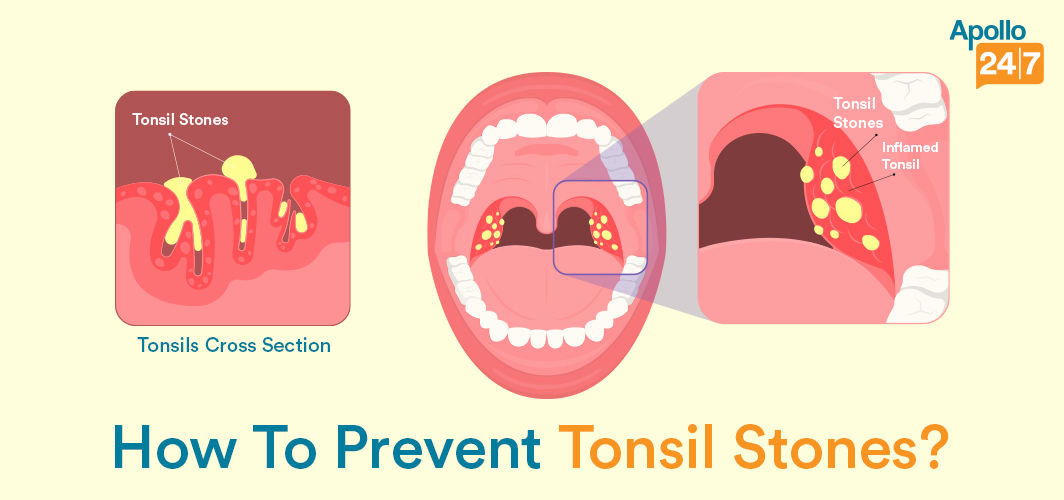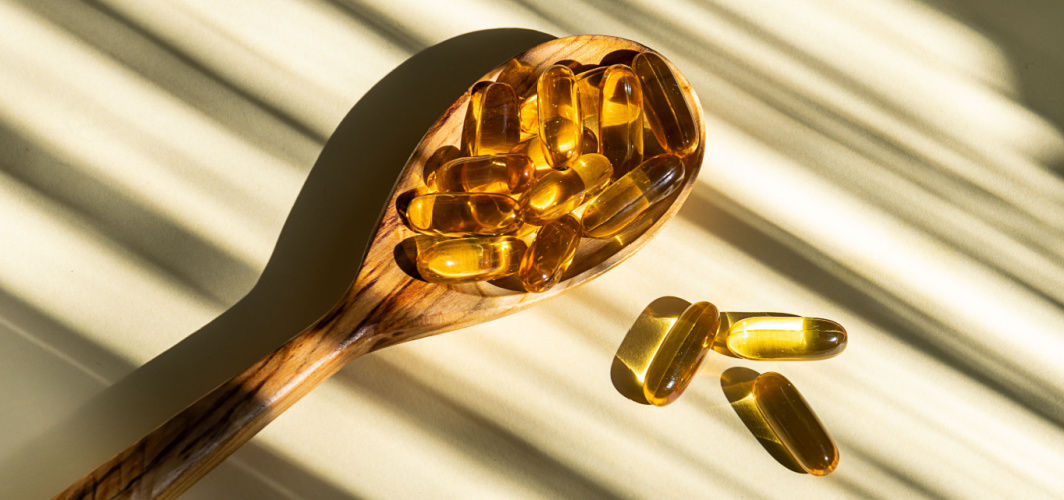General Health
Tonsil Stones and How to Prevent Them?
3 min read
By Apollo 24|7, Published on - 30 June 2022, Updated on - 18 October 2022
Share this article
0
2 likes

Are you prone to recurrent tonsillitis and also shy away from talking because you suffer from bad breath (halitosis)? If yes, there are high chances you might have tonsil stones, medically known as tonsilloliths.
What are tonsil stones?
Tonsil stones are hard calcified lumps made up of dead cells, minerals, microorganisms, and mucous. The condition is common among people who often have bouts of tonsillitis (swelling of the tonsils). However, the good news is that there are preventive measures that one can take to stop their formation, or at least minimise their occurrence.
Prominent symptoms that you may have tonsil stones?
· Bad breath
· Sore throat
· Coughing small white patches
· Bad taste or smell in the mouth
· Small white or yellow stones when you spit up
· Earache
· Small white patches
How do tonsil stones form?
There is a common misconception that tonsil stones are formed due to poor oral hygiene. However, this is not true, it has been observed that people who practice good oral hygiene, regular brushing, and flossing may also have tonsil stones.
Tonsils (oval-shaped pads in the back of your throat), which are a part of our immune system mainly guard against various bacteria and viruses. Studies suggest tonsil stones are formed when bacteria (both aerobic and anaerobic) along with food particles get trapped in the tonsils. The microbiological analysis found that aerobic bacteria were found on the surface of the tonsil stones and anaerobic bacteria were embedded deep down in the tonsil stones.
Research says one of the main reasons why tonsil stones are formed is due to genetic predisposition and secondly due to the structure of one’s tonsils. Some people may have tonsils that have deep pits and craters which are susceptible to trapping food particles, bacteria, saliva, mucus, debris, calcium, etc. that form tonsil stones.
How to prevent tonsil stones
Since tonsil stones do have an element of genetic predisposition they may occur despite good oral hygiene. However, one can take a few steps to prevent tonsil stones:
Brush and floss regularly
Brushing the tongue as well as the teeth can help reduce the amount of excess bacteria in the mouth and prevent future tonsil stones from developing.
Quit smoking
Smoking aggravates tonsillitis. Smoking can lead to an abscess in the mouth region and further form debris and mucus which can lead to recurrent tonsil stones
Gargle with salt water post meals
Gargling with warm salt water can help block bacteria or viruses from getting in your tonsils and causing issues. Additionally, it can help ease pain associated with tonsil stones.
Use chlorhexidine to rinse the mouth
It has been widely used to flush out most oral bacteria from the mouth and it’s also effective in preventing recurrent tonsil stones. Ideally, gargle the liquid for 10- 15 seconds.
Stay hydrated
Staying hydrated by drinking plenty of water can keep tonsil stones from forming. Water can also increase natural saliva production and help keep the mouth moist which will prevent tonsil stone formation.
Conclusion
Tonsil stones are a common ailment that usually does not pose any serious health risk. However, it causes halitosis and can affect the quality of life by making one susceptible to suffering from tonsillitis frequently. In rare cases, if the tonsil stones are very large, they may cause breathing or swallowing problems. Hence, if you have recurrent tonsillitis and suspect having tonsil stones be sure to consult a doctor and practice prevention techniques.
Want to Know More? Consult The Best ENT Doctors Near You Now!
- Authored by Dr. Tulika Roy
General Health
Leave Comment
Recommended for you

General Health
9 Benefits Of Consuming Cod Liver Oil Supplements
Discover the benefits and risks of cod liver oil supplements for your health. Learn about the latest recommendations and find out how to choose the right cod liver oil supplement for you.

General Health
Tips To Prevent Common Health Issues Like Arthritis, Diabetes & More In Elderly
Everyone knows that the elderly are more susceptible to many illnesses and health issues. The only way to keep yourself safe as you age is to be aware of potential medical problems and take suitable measures to prevent them. So, here is a list of some of the most common health issues affecting seniors and ways to prevent them.

General Health
5 Tips to Get Rid of Body Odour This Summer
Body odour is one of the most prevalent problems during summer. However, diet modification, hygiene management, and the use of antiperspirants can help deal with it.
Subscribe
Sign up for our free Health Library Daily Newsletter
Get doctor-approved health tips, news, and more.
Visual Stories

The Best Exercises for Controlling Blood Sugar Levels
Tap to continue exploring
Recommended for you

General Health
9 Benefits Of Consuming Cod Liver Oil Supplements
Discover the benefits and risks of cod liver oil supplements for your health. Learn about the latest recommendations and find out how to choose the right cod liver oil supplement for you.

General Health
Tips To Prevent Common Health Issues Like Arthritis, Diabetes & More In Elderly
Everyone knows that the elderly are more susceptible to many illnesses and health issues. The only way to keep yourself safe as you age is to be aware of potential medical problems and take suitable measures to prevent them. So, here is a list of some of the most common health issues affecting seniors and ways to prevent them.

General Health
5 Tips to Get Rid of Body Odour This Summer
Body odour is one of the most prevalent problems during summer. However, diet modification, hygiene management, and the use of antiperspirants can help deal with it.